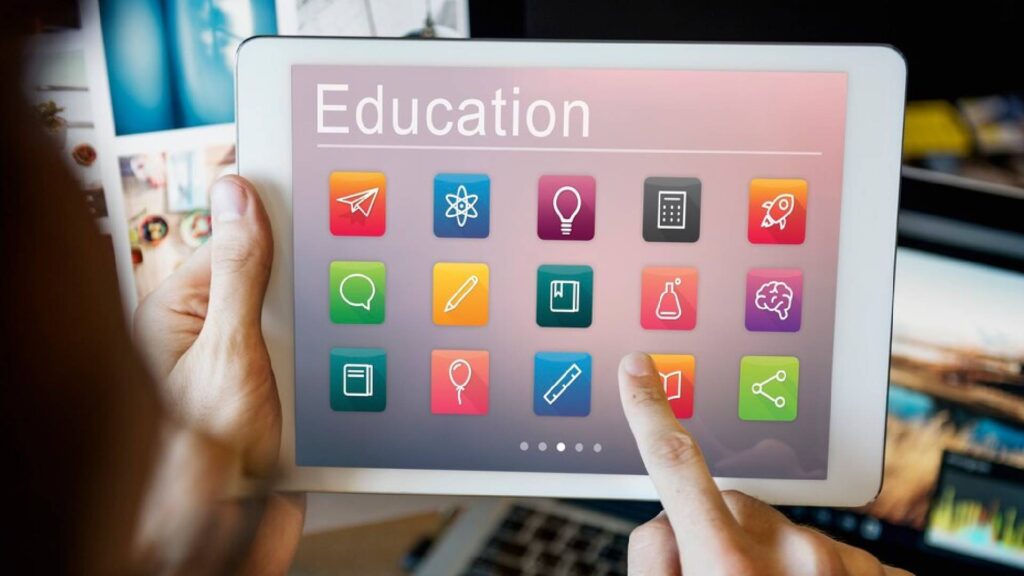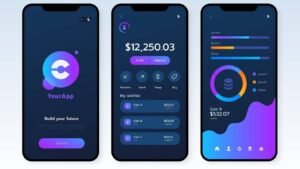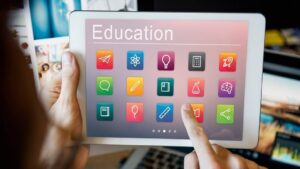Mobile Apps in Education: The Digital Revolution in the Industry
Mobile apps are revolutionizing the education sector, providing innovative solutions transforming how students learn and educational institutions operate. With the global e-learning market expected to reach $375 billion by 2026, according to Research Gate, mobile apps are paving the way for a more accessible, flexible, and efficient educational experience. These tools are not just improving how students access course materials but also enabling real-time communication, interactive learning, and personalized educational pathways. As technology advances, the role of mobile apps in education will continue to evolve, offering even more opportunities to enhance the learning experience for students of all ages.
How Mobile Apps Are Enhancing Education?
Seamless Learning Experiences
One of the greatest benefits of mobile apps in education is how they provide students with seamless learning experiences that break traditional classroom barriers. According to EdTech Magazine, 88% of teachers say mobile apps positively impact student engagement and learning. Mobile apps enable:
- Anytime, Anywhere Learning: Students can access educational content at their convenience, particularly useful for students in remote areas or those with busy schedules.
- Self-Paced Learning: Students can learn at their own pace, reducing the pressure of keeping up with the class and allowing them to focus on areas that need improvement.
- Improved Access to Resources: Whether it’s accessing textbooks, videos, or articles, mobile apps make learning materials accessible on-demand.
These features empower students by providing flexibility and fostering independent learning.
Mobile Apps in Education for Online Classes and Virtual Learning
The rise of mobile apps has made online classes and virtual learning more accessible than ever before. Apps like Google Classroom, Zoom, and Microsoft Teams have become essential tools in modern education. In fact, Google Classroom boasts over 150 million active users globally.
With mobile apps, students can:
- Attend Classes Remotely: Whether they’re at home or on the go, students can participate in live classes or access recorded lessons through their mobile devices.
- Interactive Learning: Tools like Kahoot! and Quizlet enable teachers to integrate quizzes, polls, and interactive exercises to make lessons more engaging and fun.
- Submit Assignments Easily: Mobile apps make it simple for students to complete and submit assignments directly through the platform, making the process more efficient for students and teachers.
Real-Time Collaboration
Mobile apps enable students to collaborate in real time, regardless of location. Collaborative learning encourages students to collaborate, exchange ideas, and enhance their problem-solving skills. Apps like Google Docs and Slack allow students to:
- Work on Group Projects Together: Students can simultaneously edit documents, share feedback, and complete group assignments in real time, improving teamwork and communication skills.
- Participate in Discussions: Mobile apps enable students to engage in forums, discussion boards, and chat rooms where they can ask questions, share resources, and interact with both peers and instructors.
- Learn from Peer Feedback: Instant collaboration allows students to learn from their peers’ insights and experiences, fostering a more interactive and dynamic learning environment.
This fosters a more dynamic learning experience where students can thrive in a digital classroom.
Interactive Features That Boost Engagement
Gamified Learning
Gamification is a powerful tool in education that makes learning fun and engaging. According to Edutopia, 70% of students report feeling more motivated when learning is gamified. Mobile apps incorporate game-like elements to encourage students to engage more deeply with content. These elements include:
- Achievements and Badges: Apps like Duolingo and Khan Academy reward students with badges and achievements for completing lessons, motivating them to continue progressing through the material.
- Leaderboards: Many educational apps use leaderboards to encourage friendly competition among students, pushing them to improve their performance.
- Challenges and Quizzes: Apps integrate quizzes and challenges to make learning interactive. Kahoot! is an excellent example of a game-based learning platform that uses competitive quizzes to reinforce knowledge.
Gamified learning has increased motivation and retention, making it easier for students to engage with otherwise complex or dry subjects.
Personalized Learning Paths
Educational apps are transforming traditional learning methods by offering personalized learning paths. These apps track student progress and adapt content based on individual learning needs. For example:
- Khan Academy: Uses algorithms to track students’ progress and recommend lessons based on their understanding of the subject matter, ensuring that students always work at the appropriate difficulty level.
- Edmodo: Provides personalized learning experiences by allowing teachers to tailor assignments and quizzes to meet the needs of individual students.
This level of personalization ensures that each student receives the right content at the right time, improving their overall learning outcomes.
Streamlining Education with Mobile Apps
Efficient Student Performance Tracking
Tracking student performance is essential for both educators and students. Mobile apps like PowerSchool and Schoology allow teachers to monitor student progress in real time. These tools provide features such as:
- Instant Feedback on Assignments: Teachers can grade assignments and provide feedback immediately, which helps students address areas of weakness before moving on to new material.
- Detailed Analytics: Educators can track overall student performance, identify patterns, and pinpoint areas where students may need additional support.
For students, these apps offer:
- Progress Reports: Students can monitor their own progress, set personal goals, and track their improvements over time.
- Instant Feedback: Students receive instant feedback from their teachers, allowing them to understand their mistakes and work towards improvement.
Simplified Communication Between Teachers, Parents, and Students
Communication is key to student success, and mobile apps enhance communication between teachers, students, and parents. Apps like ClassDojo and Remind enable:
- Instant Updates and Notifications: Teachers can send reminders about assignments, tests, and school events to both students and parents, ensuring that everyone stays informed.
- Parental Involvement: With apps like ClassDojo, parents can monitor their child’s progress, receive real-time updates, and engage with teachers directly, improving the parent-teacher relationship.
- Two-Way Communication: Students and parents can contact teachers for support, ensuring communication flows both ways.
This communication helps create a more transparent and supportive learning environment, fostering student success.
The Future of Education with Mobile Apps
Mobile apps are set to continue playing a pivotal role in the future of education. As technology evolves, these apps will become even more integrated into the educational experience, offering:
- More Personalized Learning: Mobile apps will continue to adapt content to meet individual student needs, providing even more tailored learning experiences.
- Increased Engagement Through AI and AR: Artificial intelligence and augmented reality are beginning to make their way into educational apps, offering immersive learning experiences that engage students on a deeper level.
- Global Access to Education: Mobile apps will continue to break down barriers to education by providing access to learning resources for students in remote areas or underserved communities.
As educational technology develops, mobile apps will remain at the forefront of innovation, enabling more accessible, engaging, and efficient learning experiences for students worldwide.
Ready to Build Your Educational App?
Are you looking to develop a mobile app that enhances education for your institution or business? Contact us today! Our expert app development services specialize in creating custom solutions for the education sector, helping you engage students and streamline operations. Let’s work together to create the future of education.













